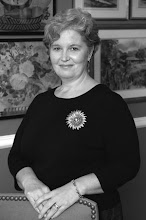 |
|
Kimberly Kuman, Executive
Director of the NSDA, Diane Zaia, Stephanie Zaia, and Janet Hieshetter with Senator
Durbin in his office in the Capitol.
|
DMRF volunteers joined with
the Dystonia Advocacy Network (DAN)* on April 8 and 9 in Washington, DC to
advocate for increased support for the National Institutes of Health, inclusion
of dystonia in the Department of Defense Peer Review Medical Research Program,
and access to care for those seeking treatment for dystonia. Dystonia
advocates participated in 150 meetings with Members of Congress and their staff
to discuss the needs and concerns of the dystonia community.
First-time advocate Rebecca Sharp said, "Taking part in
something as impactful as Advocacy Day goes beyond any fundraising and
awareness activities I have ever done. It is in a category all on its own of
'Making a Difference' that connects you with not just people who have dystonia
or have experienced Dystonia but also with those with the authority to make
decisions and implement change that affects the entire dystonia community
nationwide. I was able to experience this with my husband and son, and together
we know we made a difference. We will make this a family event every
year."
Stefanie Zaia, a senior at the University of Illinois, presented Senator Richard Durbin with the 2014 Dystonia Advocacy Network Distinguished Public Service Award. Kimberly Kuman, Executive Director of the NSDA, Diane Zaia, Stephanie Zaia, Janet Hieshetter are pictured here with Senator Durbin in his office in the Capitol. Senator Durbin was instrumental in increasing the amount of funding available for research through the Department of Defense Peer Review Medical Research Program. $200 million will be available in the coming year to support the research projects selected by the review committees.
Dystonia advocacy is not just one day in Washington, DC. The DMRF and the other DAN member organizations work hard throughout the year. These ongoing efforts make a difference. For example, as announced in late March, dystonia investigators Drs. Pedro Gonzalez-Alegre and Charles Harata were funded through the Department of Defense Peer Review Medical Research Program. Dystonia was included on the list because of the hard work of the DAN and the many advocates who have worked collaboratively in this program to educate legislators. They have been responsive to Action Alerts and been generous in sharing their personal stories to make others aware of how dystonia changes lives. If you are interested in joining with others to make a difference, please let us know.
*The members of the Dystonia Action Network are Benign Essential Blepharospasm Research Foundation, DySTonia, Inc., the Dystonia Medical Research Foundation, the National Spasmodic Dysphonia Association, the National Spasmodic Torticollis Association.





